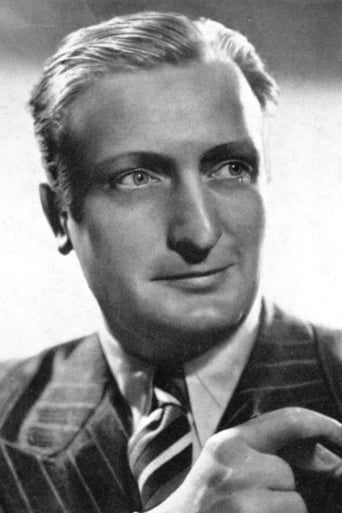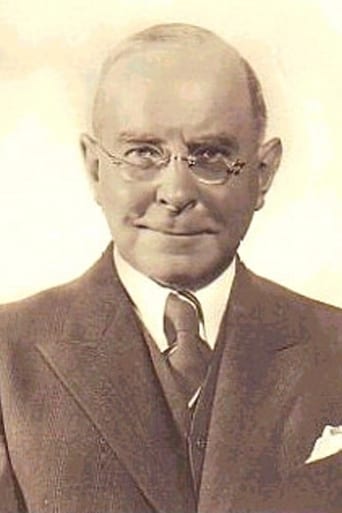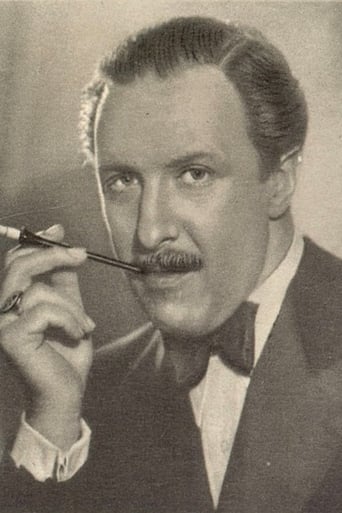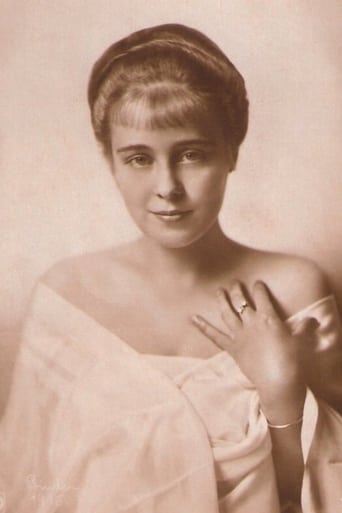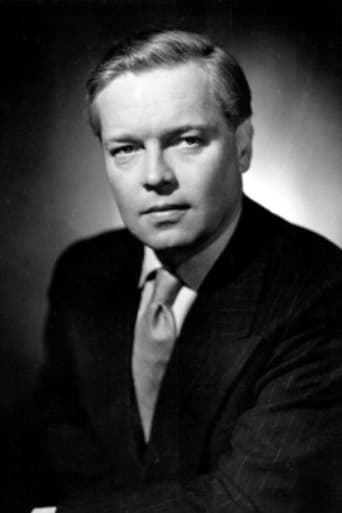Vashirdfel
Simply A Masterpiece
Onlinewsma
Absolutely Brilliant!
Humaira Grant
It’s not bad or unwatchable but despite the amplitude of the spectacle, the end result is underwhelming.
Verity Robins
Great movie. Not sure what people expected but I found it highly entertaining.
pf9
I first saw "Münchhausen" in my native Romania as a child during the war (I mean WWII) and the scene of the baron's landing on the moon and having a conversation with the head, lying on the ground, of a woman who left the rest of her body in her lunar home, made such a powerful impression on me that to this day I remember it in all its funny details. It was also the first movie in color I had ever seen; yes, those were the days when movies, as a rule, were in black and white. Revisiting the movie now, as a euphemistically labeled "senior citizen," I was surprised that it holds up quite well. It amuses, it surprises, it is well acted, the dialog is clever, written after all by the famous novelist Erich Kästner under a pseudonym to cover up the fact that the Nazis saw themselves forced to employ him after burning his books. There is something quite disturbing in hindsight about this movie. Why was it made? It was released in the year between the Battle of Stalingrad and the Allied Normandy Invasion the two events that were to seal Germany's fate. Was it an attempt to sustain both at home and abroad the far-fetched illusion that the war was going so well that all the German people cared about was laughing at the Baron Münchhausen's lies? Or was it an attempt at showing that Babelsberg could produce a grand spectacle just as well as Hollywood? And if a spectacle was being offered, why, in a country in which mass murder and deception were the order of the day, was even the hero to be a liar?I am asking these questions because much in this movie is disturbing for reasons related to them. Take the Baron himself, played in this movie by Hans Albers, the greatest star, the Clark Gable of German movies in those years, yet by the time of this movie a man in his fifties pretending to be irresistible to females. It is as if MGM had cast an aging Adolphe Menjou as Rhett Butler in "Gone With the Wind." Now Albers is a fine actor, but to enjoy the movie you definitely have to suspend disbelief and pretend that the aging actor riding the cannonball is not bothered by arthritic pain. The sets look more like cheap nouveau-riche furnishings and the costumes are cut from wartime stock. Ilse Werner, as Princess Isabella d'Este, is as beautiful as ever, and as Count Cagliostro we get to see Ferdinand Marian, the actor who just a few years earlier had disgraced himself by playing the lead in "Jud Süss," the most disgusting anti-Semitic propaganda film ever made, a fact that ultimately led Marian to alcoholism and a DUI death at war's end, considered a suicide by many. Now, one can say, let's just watch the film for what it is, and not in its historic context. But then, Marian's acting of Cagliostro, a swindler, is crafted with the same mannerisms he used in creating the Jew Süss. In short, the undeniable artistic qualities of this movie are infected with the severe moral deficiencies of its makers, and this surprisingly renders the movie more interesting than it has any right of being. This is what disturbs me.
MartinHafer
Considering that this film was made in Nazi Germany during the middle of WWII, I expected the film to be a dogmatic piece of propaganda. Surprisingly, despite its pedigree, it was a wonderful piece of escapist fantasy and seemed to have nothing to do with the Nazi regime. In fact, a writer whose works were burned by the Nazis is the man responsible for this screenplay (though, of course, under a pseudonym). So my advice is try to forget when it was made and just sit back and enjoy.Baron Munchausen was, despite the weirdness of the film, was a real adventurer and war hero. In real life, he tended to greatly exaggerate his exploits and this was the basis for later stories of his life.In this film, the movie starts in the present day (1943), but it was brilliant how the writer and director made it look like it was in the 17th or 18th century. This was very clever. Then, when a party guest begs the host to tell them about the exploits of his ancestor (Munchausen), the story of Munchausen's adventures begins. This is a wonderful way to both introduce and conclude the film and makes this aspect of the film better than the 1988 version of Baron Munchausen. Now this isn't to say the 1943 version is superior overall--it certainly isn't. In fact, BOTH are extraordinary films and I recommend you see both. However, if you can only see one, try the 1988 version by Terry Gilliam first, as the story itself is a little more action-packed and the special effects are truly amazing even today, whereas the 1943 film at times looks a bit "cheesy"--mostly because special effects of the day just weren't up to the story in a few places (since it was SO weird and over-the-top).PS--A note to parents--there is some nudity in the film, which is surprising considering this seems to be a family-oriented film. While not super-graphic, you do see a lot of topless harem girls during one scene. It's really a shame, as it doesn't exactly fit in with the rest of the film, though compared to some newer films the nude scene is rather tame. However, you should consider this when you think about having your kids watch the film.
georgi11811
I found the film to be very enjoyable. I was impressed with the use of color. The film used Agfacolor film, which if memory serves me correctly was based on pastels, not at all like Technicolor. The film is very rich and vibrant in its cinematography and color, this is very much appreciated when one sees the work that went into the Moon set.Hans Albers plays an arrogant but lovable rogue who takes many, many years to learn the lesson of what is truly important in a mans life.I am in agreement with one reviewer in that this film is not at all for children and should be screened carefully, this is a European film and the Hayes Act didn't exist in Germany.
Glenn Andreiev
If this clever, intelligent and visually stunning 1943 German version of the Baron Munchausen story was made elsewhere, and not under Nazi rule, it would surely rank as one of the great classic fantasy films. Films made in Germany during World War II received almost no worldwide distribution. Up until now, the only way to view MUNCHAUSEN was through faded video bootlegs. Kino Video, with the assistance of the F.W Murnau Foundation (who helped preserve Fritz Lang's METROPOLIS) has released a handsomely restored version of this colorful, dreamlike fantasy treat.MUNCHAUSEN begins with a great visual gag regarding an elaborate 18th century costume ball attended by the charming but constantly fibbing Baron Munchausen (Hans Albers, whom film fans will recognize as the strong-man who steals Marlene Dietrich away in THE BLUE ANGEL) Munchausen tells of his wild adventures. One moment he rides a cannonball to a sultan's grand palace, at others he takes a trip to the moon, does battle with flying barking clothing, and encounters a man-hungry Catherine The Great. MUNCHAUSEN was filmed in Agfacolor, a bright and stunning color process developed in Germany. You will see the storybook-like colors that make this film so enjoyable. MUNCHAUSEN also has some really wild moments for a film made in 1943. In one scene, topless slave girls are auctioned off. In other scenes, Russians are depicted as weasely gluttons slobbering over vats of caviar. As MUNCHAUSEN neared completion, the Germans suffered a crippling blow at Stalingrad. Any jab at the victorious Russians would have been welcomed by German audiences. MUNCHAUSEN was the film that heralded the 25th anniversary of UFA, Germany's grandest film studio. During the bombing raids on Berlin, UFA studios and its vast achieve were severely damaged. It is true miracle that MUNCHAUSEN survived as well as it did
